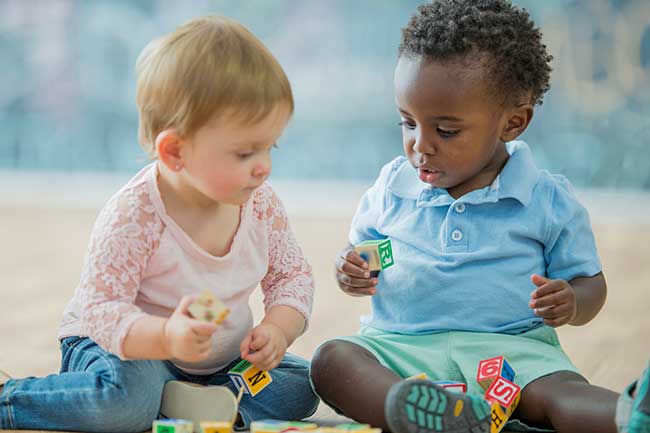While worrying about your child being included amongst their peers is one thing, the fear that your child will not be kind may trump it! Raising kind kids is a goal that many parents strive for and yet may struggle with knowing where to start.
Here are some strategies and tips to help you foster kindness in your children:
Be a Role Model
First things first, children learn by observing their parents and caregivers. Modeling kindness in your daily interactions, both within the family and with others outside, showing empathy, helping others, and engaging in acts of kindness are great ways to teach your kids without even having a conversation! Children are more likely to emulate the behavior they see every day, so don’t think that your intentions go unnoticed.
You Set Limits and Stick to Them
It’s incredibly important that you don’t inadvertently reinforce whining, tantrums or pushing of boundaries by giving in. Be clear on what your rules or limits are and when your children naturally push those limits be sure you consistently hold those limits.
Listening with Hearts and Ears
Active listening is in great demand, and the empathy your kids will learn and practice when they learn active listening is hard to overexaggerate! We all know how amazing it feels to be listened to; and in contrast, how yucky it feels when those we are communicating with aren’t communicating back. This is a tough one to stick with, yet the results are deeply meaningful. So, we’re here, working on setting our phones down a little quicker and longer each day, making eye contact, and really focusing on what our kids are saying, trying to show up for them a little kinder every day. It’s a process, and we’re in it together!
Teach Empathy
We know that empathy is the ability to understand and share the feelings of others. Encouraging your children to put themselves in someone else’s shoes and consider how they would feel in a particular situation will help them to see the other side of the situation, where they may not have known there was another side to begin with. Talk about emotions and discuss how their actions impact others. Their answers may surprise you!
Practice Gratitude
Help your children develop a sense of gratitude by encouraging them to appreciate the kindness they receive from others. Teach them to say “thank you” and express appreciation for acts of kindness, big or small.
Encourage Acts of Kindness
Foster a culture of kindness in your family by encouraging your children to perform acts of kindness. This can include helping a sibling with a task, sharing toys, or offering a kind word to a friend. Recognize and celebrate their acts of kindness to reinforce the behavior while also teaching them that they are not to do these kind acts with the expectation of something in return. This can be a particularly hard lesson to teach at such a young age, but so worthwhile.
Teach Respect and Inclusion
Teach your children to respect others’ differences, such as cultural, racial, or religious diversity. Encourage inclusive behaviors by emphasizing the value of all individuals and promoting friendship and acceptance among peers. Enrolling your child in a preschool like Little Sunshine’s Playhouse and Preschool is a great way to involve your preschooler in an environment outside the home where they are exposed to different peers outside the family.
Share
Anyone who has ever raised a toddler knows that sharing is very hard in the pre-school years. However, if during this stage a child is not consistently taught to share toys, snacks or even time this can become a longer lasting issue. So, no matter the age of your child, teaching them the importance and value of sharing is important in their development of friendships, collaboration, and teamwork.
Delay Gratification
One of the things that we know very well in psychology is that delaying gratification for kids has a long lasting positive effect on personality development in terms of impulse control and decision making. So, simply put- make your kids wait sometimes! Don’t give them what they want when they want it every time
Inspire Kindness Towards Themselves
This is probably the most important point of this whole post. Kindness starts from within. Teaching your children to be kind to themselves by promoting self-care, positive self-talk, and self-acceptance will help them develop resilience and a healthy sense of self-worth.
Parents, it is important to remember that raising kind kids is an ongoing process that requires patience, consistency, and reinforcement. By incorporating these strategies into your daily interactions and nurturing a compassionate environment, you can help your children develop into kind and caring individuals.

